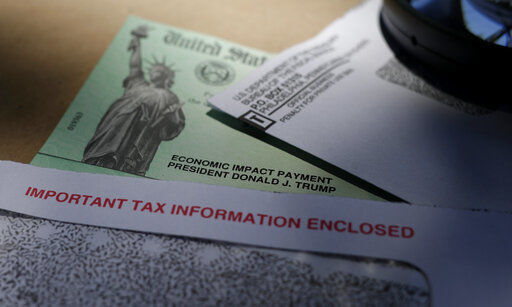Didn’t get your second relief check yet? You aren’t alone.
While the IRS and Treasury have distributed the bulk of the anticipated $164 million in second-round of relief payments for Americans faster than the first time, millions have not gotten payments yet or found hiccups in the distribution.
The latest payments of $600 per eligible adult and dependents are sorely needed among many who are struggling financially due to the pandemic.
Here’s what someone waiting on a payment should know.
WHY DIDN’T I GET THE PAYMENT?
First, make sure you are eligible. Under this latest round of relief, the $600 payments will go to individuals making less than $75,000 or $150,000 for couples who are married and filing jointly. Those who make more will get a reduced amount. There are no payments for individuals earning more than $99,000 a year.
Unlike last time though, payments will not be denied Americans who are married to someone without a Social Security number.
If you are eligible, check the IRS Get My Payment tool on its website to find out the status of you payment.
As with the last round, most payments will be automatic and made via direct deposit to bank accounts. However, some people may find they got direct deposit the first time but get their payment in the mail this time, either in the form of a paper check or debit card.
It also appears there was a major snafu this time for people who filed their taxes with an online tax preparation service such as TurboTax or H&R Block and paid for their tax preparation fees with their expected refund. In those cases, the IRS website may show that the money went to an account they do not recognize. That is because money may have been sent to a temporary bank account established by the tax preparer, which is no long active.
By law, the financial institution must return the money to the government if the account is closed or no longer active. A number of taxpayers vented online about their frustration with the situation, including many who got their payments with ease the first time.
The National Consumer Law Center estimates up to 20 million Americans may be impacted by this latest administrative issue.
“It is disappointing that the IRS did not fix this problem, which it has known about for months,” said Lauren Saunders, associate director of the National Consumer Law Center. “People who need money now may have to wait months until they can file a tax return and get their refund, unless the tax prep companies are able to forward the funds.”
HOW LONG WILL IT TAKE?
The IRS and Treasury began distributing payments last week. By law, they have until Jan. 15 to make payments.
Payments made by direct deposit could take a few days to process, but the funds were largely available early this week. The payments sent through the mail could take three to four weeks to reach people. Taxpayers are encouraged to watch their mail closely for its arrival.
People who did not receive either the first or second round of payments that were due to them or received an incorrect amount can claim the Recovery Rebate Credit on their 2020 tax return to get their payment.
WHEN DOES TAX SEASON START?
The IRS has not stated when it will begin accepting tax returns for this filing season but tax season generally begins in late January. Some tax filing services will allow customers to file before that time.
Filing electronically is the fastest and safest way to process a return. In the past, the IRS issued refunds in less than 21 days from the date the return was received.
WHY AM I GETTING ERROR MESSAGE ON THE IRS SITE?
The Get My Payment tool is helpful but can be difficult to understand.
Don’t be alarmed if you get the “please wait” message, that is a normal part of the site’s operation. If you get the “Payment Status #2 – Not Available” message, then you will not receive the payment and instead need to claim it on your tax return.
It is updated only once daily so checking it multiple times could be fruitless. Also, it can lock users out if it is accessed too many times; this is designed to prevent fraud.


